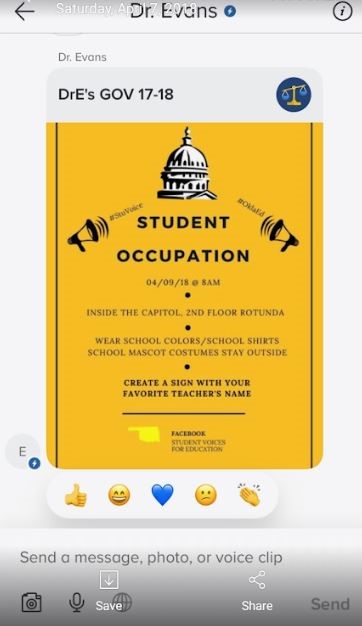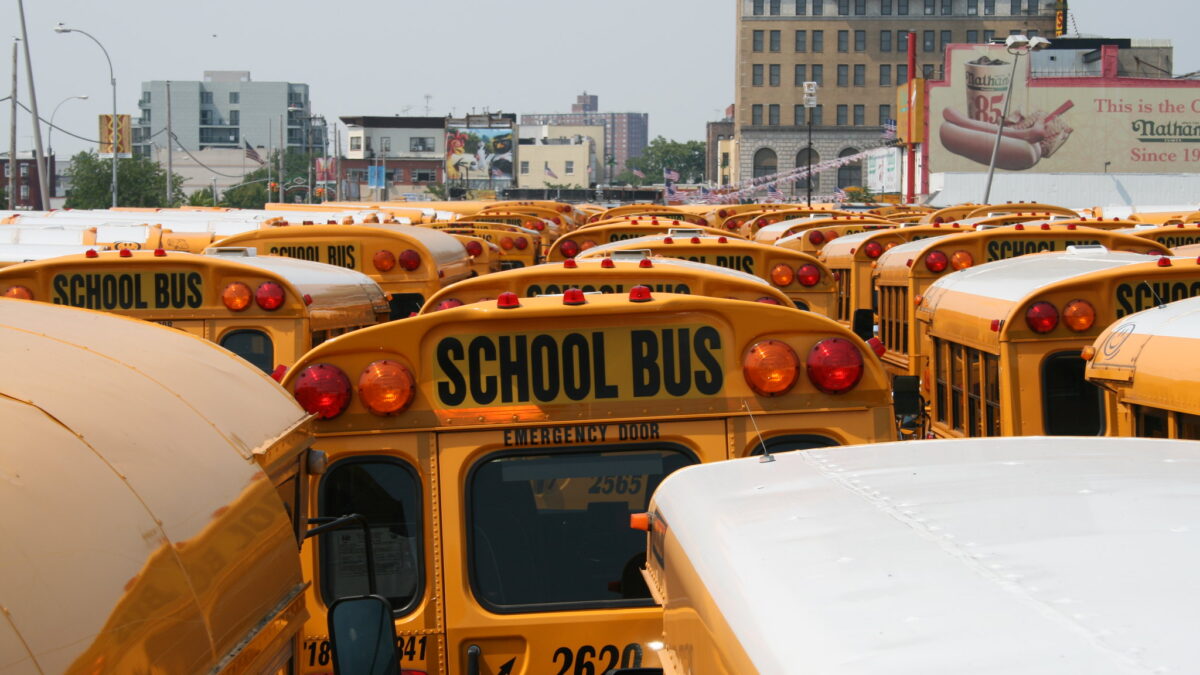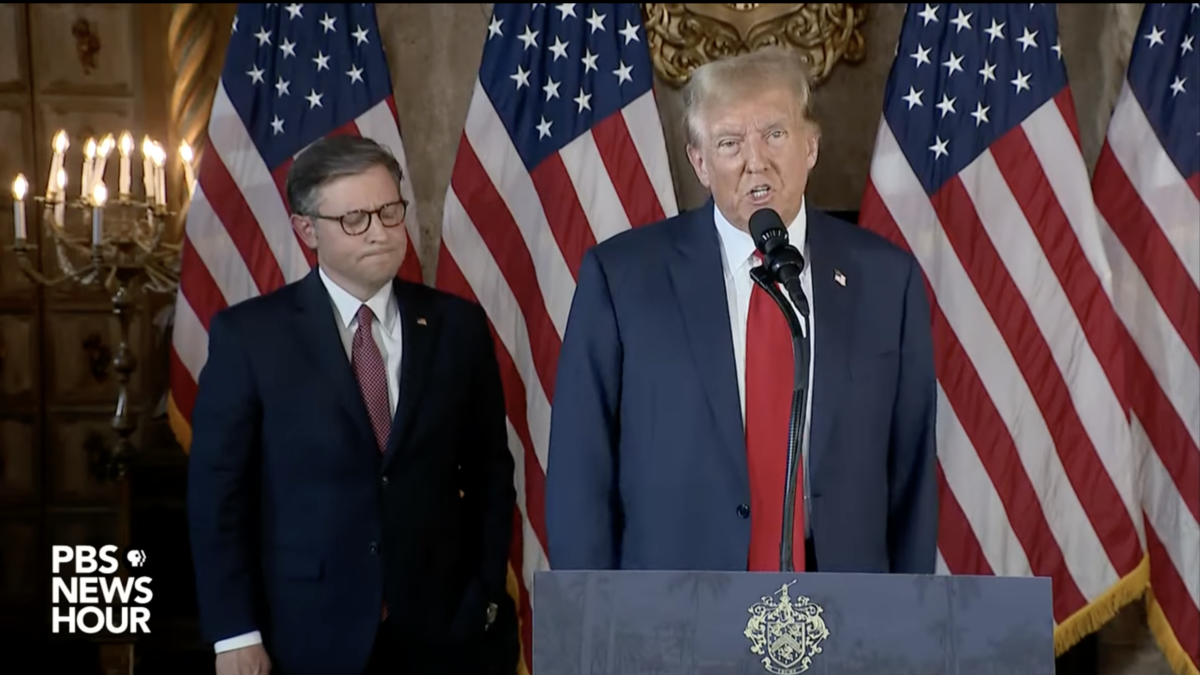
For years, parents have posted skewed homework examples to social media, reporters have been dispatched to schools to cover parent outcry at egregious assignments, and even documentaries (“IndoctriNation“) have been dedicated to public school indoctrination.
Although I’ve researched and written about public education for nearly a decade, I’ve often wondered how schools appear to get away with pervasive propagandizing—that is, until the recent Oklahoma teacher’s strike. After blocking users, many of them teachers, for profanity and name-calling, our Facebook page at Reclaim Oklahoma Parent Empowerment exploded with thoughts and feelings shared by frustrated, disillusioned parents.
Here’s what I learned when I asked several parents to share experiences learned during the Oklahoma teacher walkout.
1. Fear of Bullying Shuts Parents Up
Elizabeth Dyer told me that once classes had finally resumed after the strike lasted two full weeks with the end of school fast approaching, her teen sent her the following text from class: “Our teacher just had us write a paper on our feelings about the walk-out!”
“I was floored,” Elizabeth recounted. “School was not the place for these emotionally-charged political engagements.”
She then described what she was seeing on the Facebook page dedicated to her district’s schools.
“The constant barrage of hate spewing forth from adults in my school district gave me pause,” said Elizabeth. “It was a blood bath if anyone was even slightly concerned about the validity of the strike.”
“And in the future, I will never be surprised by issues of bullying in our schools after observing the copious amounts of bullying that went on during this strike. Bullying became the flavor of the day and dogpiling was the topping,” she said.
How many parents have the guts to confront a teacher or administrator, knowing the propensity for blow-back on their child is high? What parent wants to have an ideological disagreement with their child’s teacher, especially when an emotional confrontation is possible?
And what about the students? Learning cannot possibly result when the authority figure in the room champions one side of any issue, leaving kids scared to be ostracized for their views among their peers, uncomfortable for their grades, and nervous to tell parents about classroom deviations from familial norms.
2. The System Undermines Parental Authority
Sam Sorbo, home education advocate and author of “They’re Your Kids,” says, “With the first note sent home—‘Mommy, teacher says you have to sign this!’—suddenly the parent is under the authority of the school. So, if it comes to a battle between the teacher’s rules or the parent’s, the teacher is already in the superior position.”
I’ve seen this premise in action. My daughter’s third-grade student teacher had a penchant for left-leaning instruction. One day, a worksheet came home explaining how the world was “getting fatter” because of global warming. Because she needed help on a few questions, she handed it over to me. I read it, rolled my eyes, and told her I wouldn’t let her do it because it perpetrated junk science. An argument ensued.
Almost immediately she began yelling that I was the only parent who ever complains about anything at school, how she’d look stupid in front of her friends if her mom wouldn’t let her turn in her work, and that she didn’t want to upset her teacher because “she’s really nice.” After this exchange, my husband and I made an appointment to see both teachers and talk to them about the work we’d seen come home. Both slid into Obi-Wan mode, repeating their version of “These aren’t the droids you’re looking for” after hearing our stated concerns.
Let’s do some basic “parenting math.” Deducting eight hours for sleep whittles the useable part of a day down to 16. If my kids are in school seven of those, I’ve only got nine hours during which I can interact with them. Once home from school, homework and hangout with peers time cuts out several more hours, leaving me about the same time to interact with my kids as the school has.
I have to spread that among all my kids. After-school sports and regular household chores suck even more time out of the remainder, and if you’re a parent working an 8 to 10 hours, you could easily have less time in a day with your kids than their school has.
Now think: How many hours can parents lose from their child’s life and expect them to graduate high school comfortable with their family’s set of values, especially if the place their kids spend as much or more time is staffed with authority figures who don’t hold those values?
3. Schools Can Circumvent Parents Easily
Andrea Robinson’s daughter Brooke is a junior at a large, suburban high school. In my last article for The Federalist, I described how she received a Communist-appearing poster about a student rally in support of the teacher walkout from her teacher. She told her mom teachers were offering extra credit to students who attended.

“When I questioned her about this, she messaged a few students to see which teachers were offering [the extra credit]. By this time, no student would speak up about it,” Andrea said.
The app through which Brooke receives communications directly from her history teacher is called “Remind 101.” Although the website makes clear that it’s to be used for communications between the school and parents, and that permissions must be obtained from parents for its use, it never specifies that parents have access to the app if kids use it. In addition, Remind 101 is clear that data collection via the app is ongoing.
Andrea says seeing the poster on the app was “shocking, to say the least,” as well as “underhanded and manipulative.” She goes on to say, “Being a parent, I am not allowed to get on this classroom app. You have to have a class code to be added, and my daughter says parents are not allowed. She said we can be on a parent’s app but not the classroom’s.”
“Last year, my child was asked to leave the room and told she was a ‘distraction’ while the class was discussing evolution. My daughter tends to keep things like this from me for fear of my going to the school and throwing a fit. She thinks her grades will be affected if her mother comes up to the school to defend her beliefs or political views.”
Compound this with psychological experiments embedded in classroom software parents don’t see, U.S. history textbooks that teach decidedly anti-conservative agendas and have to be “checked out” to go home, and an Advanced Placement history curricula that “jerks instruction dramatically to the left.” Exactly how do parents breach this circle when they can’t see it in the first place?
4. Youth Protests Galvanize Them Against Authority
Not long into the teacher walkout, I received a link to a video of a 17-year-old girl being interviewed by a local reporter as she agitated for teacher raises at the state capitol.
“He shut me up,” the teen said of her state representative, with the sardonic air of one grievously wronged. “He shut me up and told me that my perception would change in the future so that I didn’t really need to be educated on it [school funding] currently.”
She shared with a reporter, “I just felt a little bit demeaned. He treated me not as if I were someone who would be voting in November, but as if I were a child. I feel like that was really disrespectful.”
Another reader sent me a link to an organization called Generation Citizen, which has a “location” in Oklahoma. Here are a few of their missions: to lower the voting age to 16, and “to engage in advocacy and policy work, building demand for action civics.”
The woman who leads the Oklahoma location of Generation Citizen had this to say of student-led advocacy during the teacher walkout: “A week of direct civic action had turned protesters into savvy advocates. Until this walkout, most of the participating students had never met their elected officials. But that’s quickly changing. Students have worked collaboratively to demystify the legislative process, understand the policy goals articulated by organizing groups, and advocate for revenue measures that would support a more equitable education system.”
All the buzzwords make this sound great, but in reality, it appears these kids were simply given the authority to protest a pre-determined cause.
Anyone who’s parented teens knows the importance of these years in establishing their autonomy. Although teens begin to feel empowered by their ability to drive and work outside the home, they must be parented and guided in their decisions because their worldviews are still microscopically small.
Authority doesn’t derive from age, but from experience. A 16-year-old has barely begun working and paying taxes. They’re not supporting a family or a household, they’ve not learned a full complement of U.S. or world history, and they’ve more than likely not experienced the death of a parent or another life-changing event. After 5 or 10 years of facing these kinds of challenges, their perspective can alter a great deal, whether they want to believe it or not.
The absolute worst thing a parent or educator of teens can do is hand them authority and a designated viewpoint on an issue. Teens’ developmental myopia will more than likely view that as permission to challenge any authority with which they don’t agree, parents included.
5. Obstruction of Parental Rights
Cynthia Hiel, whose sixth-grader attends school in a town just north of Oklahoma City, explained, “My preference is that my child knows nothing about the strike/walkout. But we weren’t given that option. It was pre-empted. My response that first day of the walkout would have been, ‘You don’t have school because grown-ups are trying to work out a lot of complicated issues, and until they do, we won’t know when you go back to school.’”
Cynthia finishes with a sentiment many parents echoed during the walkout, “I did not want my child used in any form to leverage legislatures. That is not an honest debate of fact.”
Although Oklahoma has a Parental Rights Act, many parents appear ignorant of their rights or afraid to claim them when confronted with a school hierarchy that seems bent on willfully ignoring them. After all, wasn’t it Melissa Harris-Perry who told us “we have to break through our kind of private idea that kids belong to their parents, or kids belong to their families and kind of recognize that kids belong to whole communities”? Who could blame anyone for being confused?
In fact, the year the Parental Rights Act was signed into law in Oklahoma (2015), one teacher copied it into pocket-sized booklets she handed out to other teachers and staff, as well as parents during parent/teacher night. Not long after, she received an email from her principal telling her to immediately stop distributing political information, referring to a prohibition on political activity in the union bargaining agreement. (This and other similar events ultimately caused the advanced mathematics teacher to leave public education.)
Preventing a teacher from handing out booklets on parental rights to other teachers, staff, and parents indicates a clear disinterest in these rights at the highest level. That should concern every parent. Hopefully, if this teacher walkout has done anything, it will pull parents back into the educational lives of their children and give them the power to engage on their behalf. Students should be broadly educated in all subjects, not used as pawns in a political game of chess.









